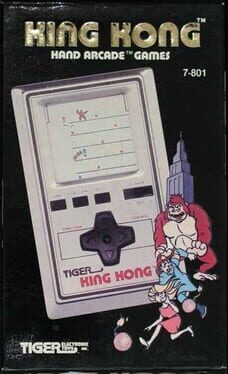▲
3
▼
Before Universal Pictures was alerted to Nintendo's Donkey Kong, leading to the very well-known lawsuit that Nintendo won, Universal licensed out the rights to the 1933 film King Kong to Tiger Electronics for a handheld LCD game, with Tiger's higher-ups being under the assumption that Donkey Kong was a licensed spin-off and not a derivative work. When the lawsuit began, Universal reworked their license with Tiger to be non-exclusive, demanded changes to Tiger's King Kong game to work less like Donkey Kong, and began releasing King Kong games on other platforms such as the Atari 2600. This was not done for monetary gain, but to try and prove that Donkey Kong's use of similar concepts was damaging their products. When Universal lost the suit, Nintendo opted to claim the royalties that Universal felt it was owed instead of claiming damages from Tiger, a move which could have been potentially lethal for Tiger.
